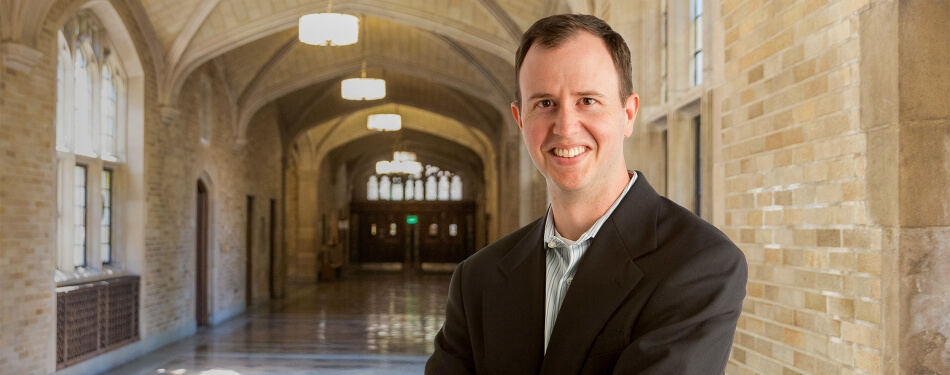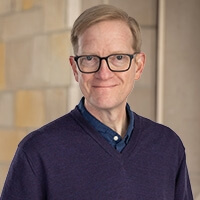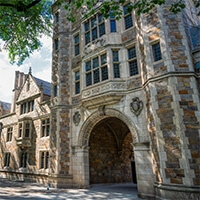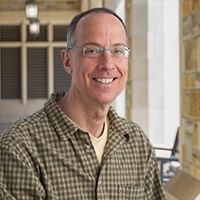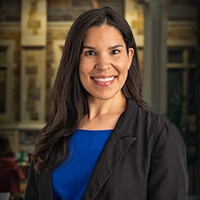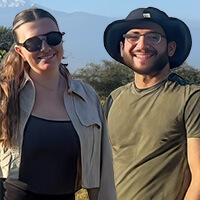Professor Timothy Pinto, ’97, recently argued his first case before the Michigan Supreme Court. The case, In Re D.V. LANGE, also marks his first win before the state’s highest court.
Pinto and Vivek Sankaran, ’01, are clinical professors of law whose work includes leading Michigan Law’s Child Welfare Appellate Clinic (CWAC). Since 2013, student-attorneys in the clinic have addressed an average of six cases per academic year involving termination of parental rights before the Michigan Court of Appeals.
Some cases, however, lead Pinto and Sankaran to appeal them further.
“In recent years, we’ve become a little more aggressive in taking on cases beyond those that our students are handling,” said Pinto. “For this case, the issue has been a recurring problem in Michigan, which had already been raised with the Michigan Supreme Court in a previous case but was never resolved. When the Court of Appeals ruled on this case, it struck us as an issue the court would consider taking.”
Jurisdiction without just cause
LANGE involves a mother and her adoptive son (“the juvenile”) who, from the time he was adopted at five years old, presented a number of psychiatric challenges. The juvenile was a danger to himself, his mother, and her two other children. Despite placing him in various residential treatment programs over the years, the juvenile was repeatedly kicked out and sent back home.
His behavior continued, which included threatening to burn down their home and to harm himself and his family.
Most recently, and the instance with which this case spurred, the juvenile was hospitalized with the understanding that he would be housed there until a more suitable program was found. However, the hospital retracted their offer before finding a program for the juvenile and deemed him “fit” to go home while they continued searching.
The juvenile’s mother, knowing it was unsafe to allow him back into the home, refused to pick him up from the hospital. That’s when the Michigan Department of Health and Human Services (DHHS) opened a case against the mother, under the statute MCL 712A.2(b)(1) or (2).
These sections of the statute require that either (1) the parent has failed to provide care when “able to do so” or (2) the parent’s home is unfit by reason of “abuse or neglect.” Michigan Supreme Court Chief Justice Megan K. Cavanagh, who voted in the LANGE case, had previously dissented in a similar case, expressing concern about courts taking jurisdiction based solely on a parent’s inability to provide care.
“In one sense, this case was a statutory fight,” said Pinto. “In another sense, it’s an example of an issue that continuously arises where parents are put in unfair positions—parents who may have exhausted their resources trying to help a child and are now at a loss. Accusing someone of abuse and neglect who has shown no sign of such behavior is unlawful.”
Pinto expressed that, in essence, there is an overwhelming need for a no-fault provision for cases that use MCL 712A.2(b)(1) or (2), particularly when the goal is to take jurisdiction over a child with little to no concern for the impact it may have on the parental figures and their rights.
Taking home the win
Four out of the six justices ruled in favor of Pinto’s client. DHHS was denied jurisdictional rights, and the juvenile was eventually placed in a new treatment program, allowing the mother to maintain her parental rights and keep her and her family safe.
“There isn’t a lot of published law on child welfare in Michigan, and it’s an area ripe for clarification and improvement—this recent case is a great example,” said Pinto. “One of the greatest things about CWAC is that a startling number of cases that have been published in the last decade have originated from the clinic.”
CWAC alums even step in to help when needed—like Kate Markey, ’21, who assisted Pinto and Sankaran on the LANGE brief.
“Both the opportunity to argue before the Michigan Supreme Court and the win are important markers in my legal career,” said Pinto. “I’ve done a number of oral arguments, and it’s taken me a long time to get comfortable doing them. I’m always exceedingly nervous, and imposter syndrome exists for professors like everybody else.”
He continued, “Over the last year or two, doing more arguments at the court of appeals level, I’ve started to think of myself as having a dialogue with the judges. Vivek [Sankaran] is my model for this. He always approaches arguments like a law professor—he wants to educate the justices, not bamboozle them or be flashy. I aimed to do that, and I truly loved the experience.”

